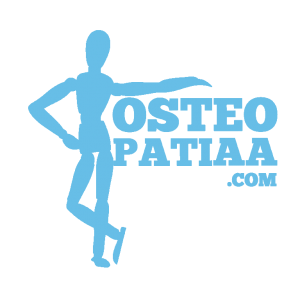in English
The practice of osteopathy uses osteopathic, medical and scientific knowledge to apply the principles of osteopathy to patient diagnosis and treatment.
The aim of osteopathy is to improve and support all aspects of health and healthy development. Osteopathic treatment may be preventive, curative, palliative or adjuvant. Osteopaths analyse and evaluate the structural and functional integrity of the body using critical reasoning of osteopathic principles to inform individual diagnosis and treatment of the patient.
These principles are:
The human being is a dynamic functional unit, whose state of health is influenced by the body, mind and spirit; if one part is changed in the system, the balance of the whole pattern will be affected;
The body possesses self-regulatory mechanisms and is naturally self healing; the human being always tries to regain its own dynamic balance and establish homeostasis; and
Structure and function are interrelated at all levels of the human being.
The osteopathic approach to healthcare is patient-centred and focused on the patient’s health rather than disease-centred. Scientific rigour and evidence-informed practice are an important part of patient treatment and case management. Osteopaths use manual contact to identify and evaluate movement in all structural and functional aspects of the patient, identifying alterations of function and movement that impede health and addressing these.
The highly developed sense of touch and attention to complex systems as a unit is typical of an osteopathic approach. Osteopathy is an independent healthcare discipline. Osteopaths should also cooperate with practitioners of other disciplines.
Osteopathy is based on principles drawn from human physiology, anatomy, embryology and other bio-medical sciences. In consequence of the complexity of the human organism there are a number of different models that are used in osteopathy.
Extract from Comité Européen de Normalisation (CEN) Standard EN16686 for osteopathic practice and education’, developed by CEN’s Project Committee on ‘Services for Osteopaths’ (CEN/TC 414). Bringing together healthcare professionals from across Europe, the Standard was initiated and led by the European Federation of Osteopaths (EFO) and the Forum for Osteopathic Regulation in Europe (FORE).
Text from EFO, The European Federation and Forum for Osteopathy
Ahti Kallio, Osteopath D.O, Sports Massage Therapist
